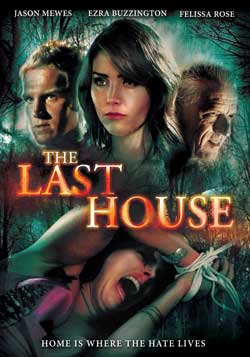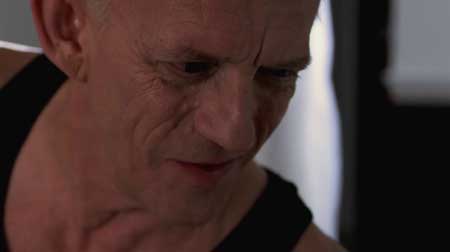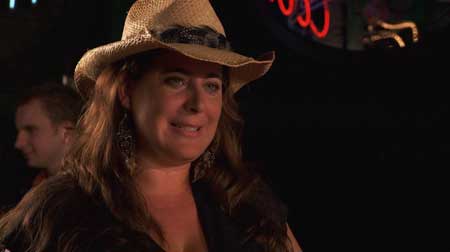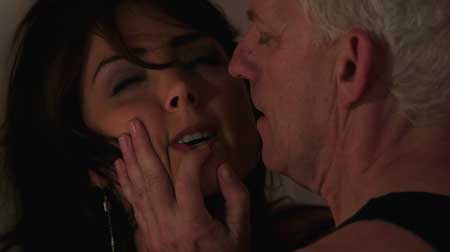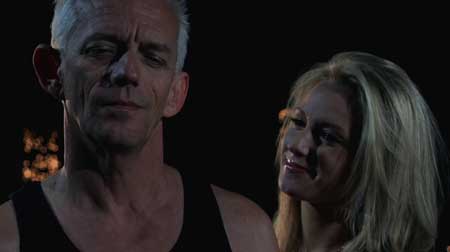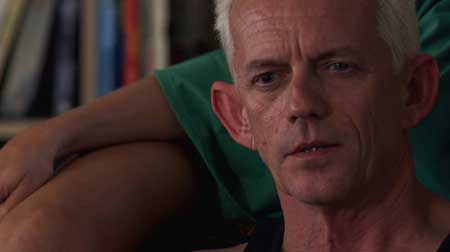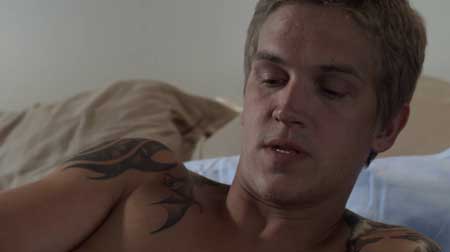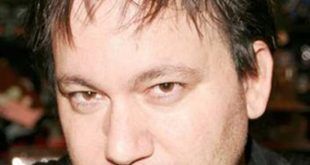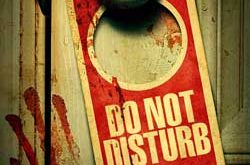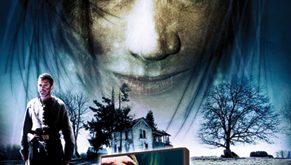SYNOPSIS:
A prostitute/escort wants to quit after falling in love with one of her johns but must complete one last booking. However, her last job turns out to be more than she bargained for as her client seeks the true nature of evil.
REVIEW:
The Last House is a very odd film trying to find a home somewhere in genre-land. Try as I might, I could not get on board. The film was originally shown in 2011 as Breath of Hate, but after failing to garner a distribution deal and an unsuccessful Kickstarter campaign, it never received an official release. Eventually, the film was renamed The Last House, distribution was lined up, and the film was released.
The story follows a high end prostitute named Love (Lauren Walsh) and one of her customers, Ned (Jason Mewes). Even though he’s never charged, Ned always pays. The two have fallen for each other and Love decides to leave the profession to be with Ned. When she tries to quit, Love’s pimp tells her that she and two other girls are already booked for a party that evening. Love agrees to the job with the condition that it will be her last.
Love, Hailey (Jeanine Daniels) and Jenna (Alexis Zibolis) are dropped off at a mansion where they are met by their client, Hate (Ezra Buzzington) – yup, it’s a confrontation between Love and Hate – and his two associates, Selma (Monique Parent) and Cleb (Ricardo Gray). We soon learn that the encounter will be far more than a “party” for the three working women.
The evening begins with some friendly, but very strange, conversation over a few beers, which establishes everyone’s place in the encounter. Each of the three women are paired with one of Hate’s band – Love with Hate, Hailey with Selma, and Jenna with Cleb – and the couples separate to different parts of the mansion. Rife with drugs, perversions, and pain, the encounters go far beyond anything the three escorts could’ve imagined. They move very quickly from willing participants to unwilling victims. Meanwhile, Ned begins to suspect something has happened to Love when she doesn’t return on time. In his efforts to find and rescue Love, he must first locate her pimp and then convince him to reveal Love’s whereabouts.
Written by Wes Laurie and directed by Sean Cain, The Last House tells its story in a very disjointed, nonlinear timeline. That by itself would be fine, but there are also some very strange sequences that might be hallucinations, dreams, alternate reality, or paranormal activities. First someone is dead, then they aren’t. It’s hard to tell what’s real and what falls into the “isn’t real” category. To add to the confusion, there didn’t seem to be any cinematic devices used to indicate where you were in the timeline or if the action was really taking place at all. We are also treated to some scenes of Hate pontificating on his philosophy of life while speaking from what appears to be a pulpit or lectern. These scenes combined with the intentionally disjointed timeline made it very difficult to follow. There’s also a significant amount of monologue and dialogue regarding Hates philosophy; – far more than was needed and far too much to hold my interest.
The actors do the best they can with what they are given and in general, their performances are adequate. The one standout performance is given by Ezra Buzzington, who does a fine job as Hate. Though the character was obviously insane and deeply flawed, Buzzington was also able to infuse his portrayal with the nuances of an extremely intelligent man behind the maniacal nature of his proclamations.
We’re also treated to a cameo appearance by Felissa Rose (Sleepaway Camp) as a pregnant realtor checking up on her property. It turns out that Hate and the gang are squatters and once she knows they are there, they can’t let her leave, so Cleb kills her. Ms. Rose’s character is dispatched so quickly, I can only assume the scene was inserted to let you know that Love’s last job would have far more ominous outcomes than a typical party. However, Hate and Cleb behave so bizarrely within minutes of the women’s arrival, that there is little doubt that events will take a dark turn.
The Last House suffers from some of the common limits of a low budget, independent production. But that’s not its chief problem. Its biggest downfall is the way in which the story is told. The disjointed timeline combined with “is or isn’t it real” scenes interspersed with Hate’s disconnected mini-sermons is needlessly confusing. There might be a better movie in there somewhere, but it’s lost within the maze created by the storytelling.
I give The Last House 1.75 out of 5 perversions. But that’s just me.
 Horror News | HNN Official Site | Horror Movies,Trailers, Reviews
Horror News | HNN Official Site | Horror Movies,Trailers, Reviews
